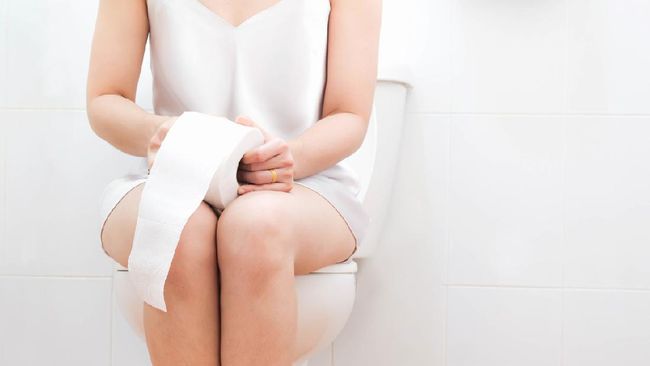Jakarta, CNN Indonesia –
Waking up to loud noises, dreams, or alarm sounds may be common. But have you ever woken up as a result of wanting to pee? pee? If so, you should be suspicious of this experience including nocturia.
What is nocturia?
Harrina Erlianti Rahardjo, Chair of the Indonesian Society of Female and Functional Urology (INASFFU) as well as the Medical Staff of the Urology Department, FKUI-RSCM explained that nocturia is the number of periods of urination (urinating) during primary sleep. Main sleep means sleeping long in a day. Generally people have the main sleep portion at night, but it is not impossible that the main sleep can also be during the day. Harrina said that the main sleep during the day is commonly done by people who work at night.
The key to recognizing nocturia is when you wake up to urinate, then this is followed by the desire to go back to sleep.
“Normally, people do not wake up (during primary sleep). In some research, nocturia is relevant to quality of life disturbances, as well as the risk of developing comorbidities. The frequency of urinating twice or more a night. But even waking up is also considered nocturia,” said Harrina at webinar with the Indonesian Association of Urologists (IAUI) and INASFFU, Friday (18/12).
He continued urinating in the middle of the main sleep is often considered something normal. Though nocturia needs to be evaluated. If left untreated, nocturia can interfere with sleep quality and often interfere with quality of life.
When sleep is disturbed, the next day the mood is bad, work performance is disturbed because of decreased cognitive function. Nocturia is also associated with falls in the bathroom, work accidents as well as traffic accidents due to decreased attention and fatigue due to lack of rest.
Urinating or urinating activities are related to fluid intake. Nocturia can be caused by a daily diet and too much fluid intake, especially before bedtime. But Harrina says fluid intake isn’t the only cause of nocturia. Apart from fluid intake, here are some causes of nocturia.
– Overactive urinary tract due to prostate
– kidney problems, such as kidney failure
– hormone disorders, for example diabetes mellitus
– sleep disorders, such as insomnia, snoring
– cardiovascular conditions, for example consumption of heart drugs that can trigger urination
– diet, consumption of foods high in salt and sugar
“There are simple things that can be done to improve the condition of nocturia such as consumption of foods low in salt and calories, then limiting fluid intake, especially before bedtime. The recommended type is still plain water,” he said.
However, when the nocturia doesn’t change or gets worse, it’s best to see a doctor. From here the doctor will check the overall condition of the body, including daily urination records, urine checks as well as post-urinary urine checks.
(the / chs)
– .


